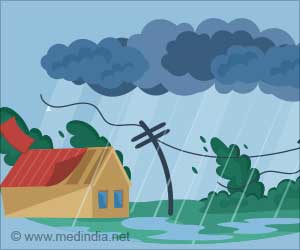The discovery of some of the most fertile soils in the world in central Amazon, might help to revolutionize farming, as well as curb global warming.
The discovery of some of the most fertile soil in the world at an ancient site of charcoal deposit in central Amazon, might help to revolutionize farming, as well as curb global warming.
Fifteen hundred years ago, tribes people from the central Amazon basin, mixed their soil with charcoal derived from animal bone and tree bark. Today, at the site of this charcoal deposit, scientists have found some of the richest, most fertile soil in the world.Because this ancient, remarkably simple farming technique seems far ahead of its time, it holds promise as a carbon-negative strategy to rein in world hunger as well as greenhouse gases.
According to scientists, charcoal derived from heated biomass has an unprecedented ability to improve the fertility of soil - one that surpasses compost, animal manure, and other well-known soil conditioners.
They also suggest that this so-called "biochar" profoundly enhances the natural carbon seizing ability of soil.
Dubbed "black gold agriculture," scientists said that this "revolutionary" farming technique can provide a cheap, straight-forward strategy to reduce greenhouse gases by trapping them in charcoal-laced soil.
"Charcoal fertilization can permanently increase soil organic matter content and improve soil quality, persisting in soil for hundreds to thousands of years," said Mingxin Guo and colleagues from Delaware State University.
Advertisement
According to the authors of the research, "The results demonstrate that charcoal amendment is a revolutionary approach for long-term soil quality improvement."
Applying raw organic materials to soil only provides a temporary solution, since the applied organic matter decomposes quickly.
"Converting this unutilized raw material into biochar, a non-toxic and stable fertilizer, could keep carbon in the soil and out of the atmosphere," said Guo.
"Speaking in terms of fertility and productivity, the soil quality will be improved. It is a long-term effect. After you apply it once, it will be there for hundreds of years," he added.
With its porous structure and high nutrient- and water-holding capabilities, biochar could become an extremely attractive option for commercial farmers and home gardeners looking for long-term soil improvement, the research team said.
According to Guo, this ground-breaking farming technique can also help feed countries with poor soil quality.
"The production of current arable land could be significantly improved to provide more food and fiber for the growing populations. We want to call it the second agricultural revolution, or black gold revolution," he said.
Source-ANI
SPH/L






